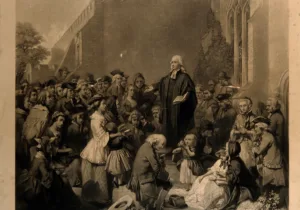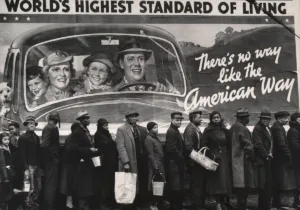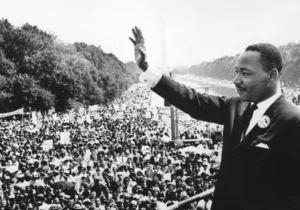Conscience and Commerce: Thoughts from John Wesley
“Gain all you can”; “Save all you can”; “Give all you can.” This was John Wesley’s maxim for gaining and spending money.
Erik MatsonOctober 11, 2023
The Best Economy: Free and Fair, But Not Fixed
Balancing the scales of liberty and equality is both a free-market and a Christian concern.
James RowellMay 15, 2023
Are Reparations the Remedy?
There are several reasons reparations may not solve America’s problems
James RowellMay 8, 2023
St. Antonio and the Scholastics: Medieval Monks as Economists
Surprisingly, the first thinker to produce a systematic treatise on what’s today called Economics was Renaissance-era Dominican monk St. Antonio of Florence.
Antonio GraceffoFebruary 14, 2023
Either Meritocracy or the Common Good, Not Both: A Review of Michael Sandel’s The Tyranny of Merit
In The Tyranny of Merit: What’s Become of the Common Good? Michael Sandel eloquently argues a sobering idea: America can pursue meritocracy or the common good, but not both.
James DiddamsJuly 23, 2021
State Privilege Won’t Save a Faith
Proponents of religious economy theory point to evidence suggesting that religious adherence decreases when a government actively promotes a church or hinders other beliefs.
Mark MeltonOctober 28, 2020
The Confusing Rhetoric out of Washington on Venezuela
At this point, it is necessary to discuss the rhetoric utilized by the White House and US Congress regarding Venezuela, compared to how senior US military commanders discuss the situation and the possibility of US military action in the South American country.
W. Alejandro SanchezMay 8, 2019
Trump’s Trade Tirades
The economic case in favor of free trade remains as definitive and decisive today as it was when articulated by Adam Smith in 1776. But making an economic case is not enough. The moral and cultural case needs to be made as well.
Jordan J. BallorJune 20, 2018









 Sponsor a student for Christianity & National Security 2024
Sponsor a student for Christianity & National Security 2024